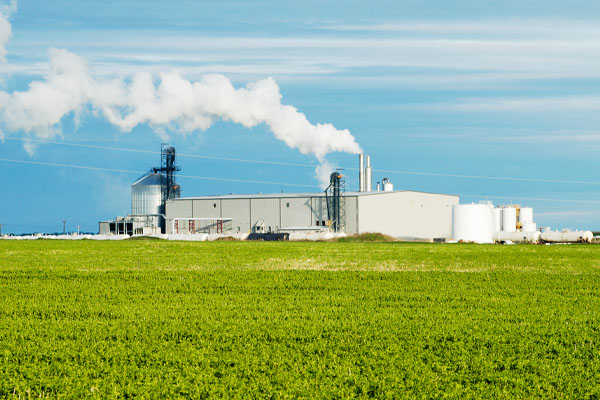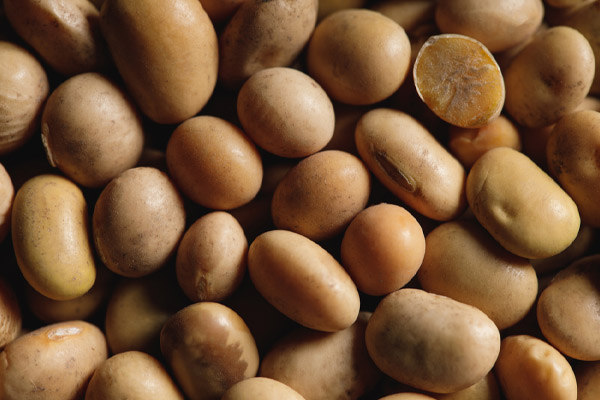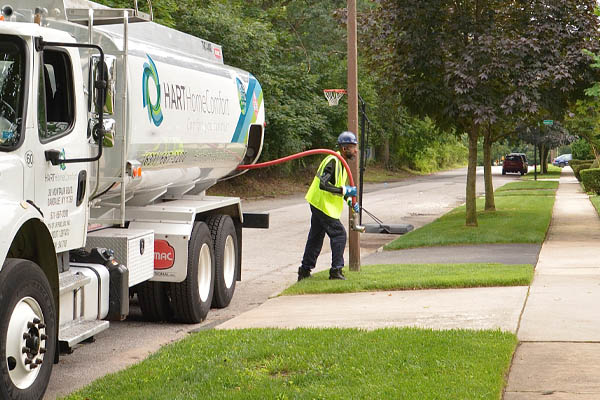Biofuels: Making Energy Out Of Plants

Biofuels, fuel derived from plants, show great promise for the future of energy. This kind of fuel is renewable, so it can be produced repeatedly. It also does not harm the environment, making it a safe option in protecting the Earth from further damage.
Biofuels’ most essential feature is their sustainability. They are generated using plant materials, such as soy, corn stalks, wood chips, and grasses. The world will continue to grow and produce a plant matter called biomass. It will not run out like other fuel sources that are heavily depended upon to power our everyday lives.
Types Of Biofuels & Their Uses
Table of Contents
Biofuel can be made in several different ways. However, this fuel is generally produced via fermentation, heat, and chemical reactions to break down the plant molecules in starch and sugar, among others. As a result, materials that can be refined and used for fuel production are created. This fuel can be used to power automobiles like trucks and cars.
Ethanol

A large volume of the gasoline produced and used in the country already has the most commonly produced biofuel. This biofuel is ethanol. It is made through the fermentation of plant sugars from corn, sugarcane, and other sources. Moreover, this fuel has a lot of oxygen. This means that car engines can burn this fuel efficiently without generating excessive air pollution.
US ethanol is usually extracted from corn. It is utilized as a part of a mixture with 90% gasoline and 10% ethanol. In comparison, fuel in Brazil has sugarcane-based ethanol. It is mixed at a 73% gasoline and 27% ethanol ratio.
Biodiesel

Another alternative source of fuel is biodiesel. It is utilized instead of traditional diesel fuel and, like ethanol, it’s a renewable energy source. This type of fuel is generated from fats, such as animal fat, recycled cooking oil, and vegetable oil. It is then mixed with petroleum-based diesel.
Currently, biodiesel fuels numerous buses, trucks, and military vehicles in the United States. A blend of 80% diesel fuel and 20% biodiesel is used as it can be challenging to run a car using pure biodiesel. This is because the cold weather compromises biodiesel, and it can be problematic for older vehicles at times.
Biomethane
Biomethane is a renewable type of natural gas. It is a fuel source that is considered an almost pure methane source. This near purity is achieved via the gasification of solid biomass or upgrading biogas, which eliminates contaminants and CO2 from the fuel blend.
This type of biofuel has plenty of uses, and it can even be used for transportation. More importantly, it is considered an excellent alternative to generate heat and electricity. This renewable natural gas is derived from livestock operations, wastewater, landfills, and other sources.
What Materials Are Used To Make Biofuel?
Nowadays, oil that is created from soybeans is a major feedstock for the production of biodiesel (or biofuel). One of the most common ways of biodiesel production is using ethanol or methanol, and animal fats or vegetable oils. It is produced with sodium hydroxide, which serves as a catalyst. This transesterification reaction leads to the creation of ethyl or methyl esters (also called biodiesel) and a byproduct of glycerin.
A variety of materials and feedstocks can be used to create the different biofuel types aforementioned. Many people are already aware that corn and sugarcane are well-established ethanol feedstocks.
The use of corn to process ethanol has been debated for quite some time. Many are still uncertain whether the environmental benefits of corn-based ethanol are worth the huge investment as a significant amount of energy is needed to process corn plants.
Many scientists and startup companies are starting to test other materials to find out how they fare in creating additional biofuels. Their focus is mainly on resources that won’t add more concerns because of their environmental impact or effect on the food supply chain.
An example of this is cellulosic ethanol. The cellulosic feedstock is taken from plant materials such as corn stover, wood waste, and other plant-based alternatives. These materials are usually considered waste and have no immediate use, making them the perfect option to create cellulosic feedstock.
Other materials used as biofuel feedstocks are algae, wastewater sludge, cooking grease, grasses, and animal waste, among other economically usable oil sources.
Putting Plants To Work To Lower The Cost Of Biofuels

Scientists are using different plants in the production of bioproducts and viable chemical compounds during the growth process as part of their effort in making biofuels more competitive. Bioproducts are extracted directly from plants, and the additional plant materials are converted to fuel. This method of production helps reduce the final biofuel product’s overall cost.
Researchers are working tirelessly to find the correct quantity of a specific bioproduct to create a biofuel that’s economically feasible. Creating a valuable bioproduct will lower biofuel production costs and help make it much more affordable in the long run.
After all, the goal is to make ethanol inexpensive. Their target selling price is $2.50/gallon of ethanol. This can be achieved if the process can be refined and the cost of bioproducts production is reduced.
Common Ethanol Feedstocks
Some of the usual ethanol feedstocks include:
- Soy – Soybeans are a common crop in the upper Midwest, where millions of acres are used to grow soy crops. Biodiesel made from soybean oil is a non-toxic, clean-burning renewable fuel. It can power all diesel engines without the need to be modified. It also helps reduce greenhouse gases and particulate emissions.
- Sugar and Starch-Based Ethanol Feedstocks – The main crop in the US is corn, and it is the biggest feedstock for the affordable and large-scale production of ethanol. Another popular resource is sugarcane, which Brazil, the second-largest ethanol producer, uses.
- Cellulosic Ethanol Feedstocks – This is based on nonfood items, like industrial wastes, specifically dedicated energy crops, wood residues, and crop residues, among others. Sale elastic feedstocks are composed of cellulose, lignin, and hemicellulose.
Conclusion
The world is finally working as one to create clean, environmentally friendly, and affordable fuel sources. Biofuels allow us to develop sources of renewable energy that can deliver electricity, heat homes, and fuel vehicles for many years to come.
Only time can tell how effective our efforts are in creating affordable and viable biofuels. The most outstanding scientists around the world are working to solve this problem. They are doing their best to use existing resources to create biofuel sustainability for the coming years.
Use Hart Home Comfort’s EcoBlend Bioheat® Heating Oil For Your Heating Needs
 Hart Home Comfort is proud to provide homeowners in Nassau County, Suffolk County, and Queens, New York with a greener and cleaner solution in the form of EcoBlend Biodiesel. This is ultra-low sulfur and low carbon heating oil that is blended with 100% biodiesel.
Hart Home Comfort is proud to provide homeowners in Nassau County, Suffolk County, and Queens, New York with a greener and cleaner solution in the form of EcoBlend Biodiesel. This is ultra-low sulfur and low carbon heating oil that is blended with 100% biodiesel.
EcoBlend Bioheat® Fuel doesn’t require costly furnace modifications allowing homeowners to use their existing equipment while making the switch to cleaner fuel. Call Hart Home Comfort today to learn more about EcoBlend Bioheat® Heating Oil and join us in reducing carbon emissions today!
For any questions about what Hart Home Comfort can do for you, give us a call today. Click here to contact us now or call us at (631) 667-3200 to find out more!